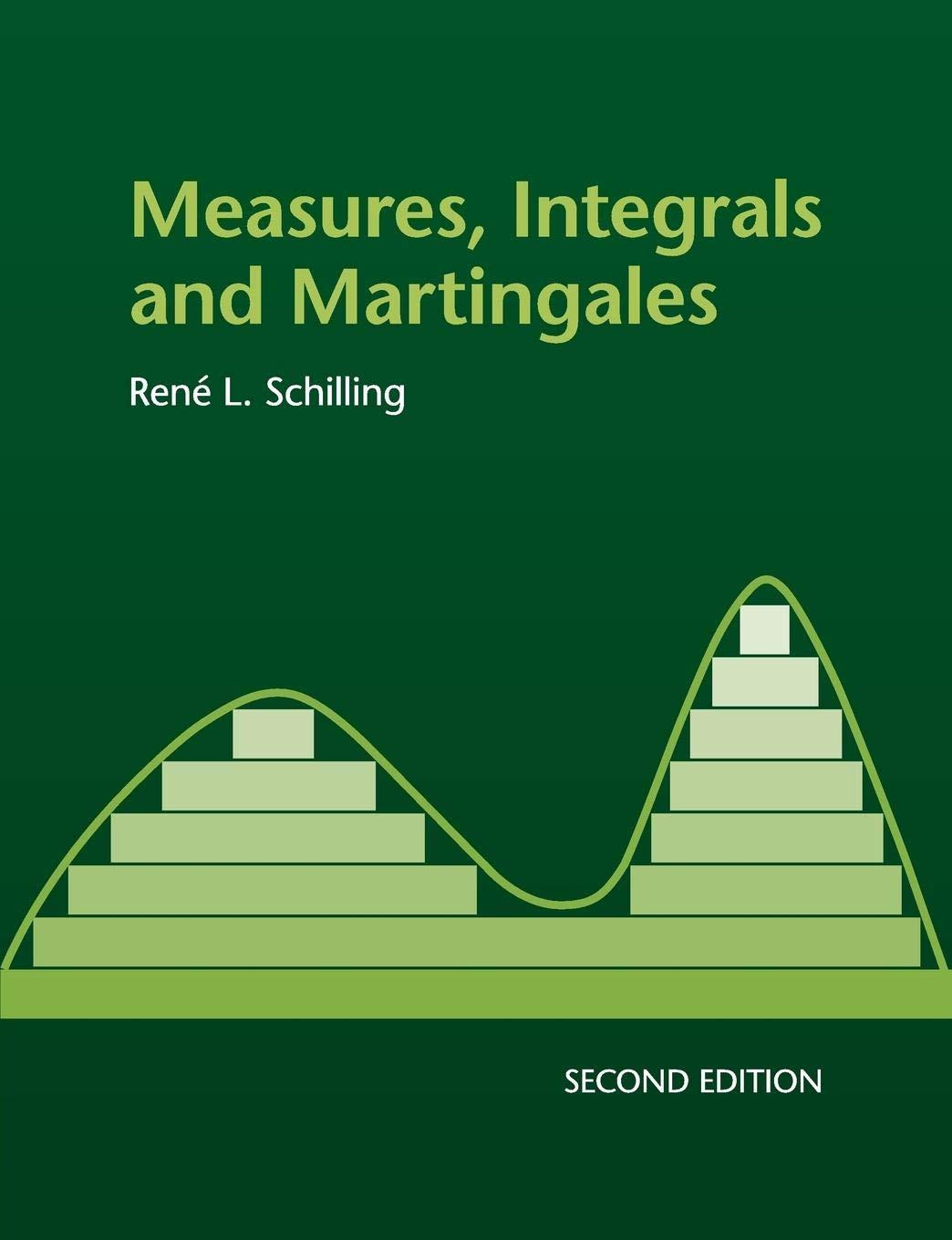Rearrangements. Let ((X, mathscr{A}, mu)) be a (sigma)-finite measure space and let (f in mathcal{L}^{p}(mu)) for some
Question:
Rearrangements. Let \((X, \mathscr{A}, \mu)\) be a \(\sigma\)-finite measure space and let \(f \in \mathcal{L}^{p}(\mu)\) for some \(p \in[1, \infty)\). The distribution function of \(f\) is given by \(\mu_{f}(t)=\mu\{|f| \geqslant t\}\) and the decreasing rearrangement of \(f\) is the generalized inverse of \(\mu_{f}\),
\[f^{*}(\xi):=\inf \left\{t: \mu_{f}(t) \leqslant \xiight\}, \quad \xi \geqslant 0, \quad(\inf \emptyset=+\infty) .\]
(i) Let \(f=2 \mathbb{1}_{[1,3]}+4 \mathbb{1}_{[4,5]}+3 \mathbb{1}_{[6,9]}\). Draw the graphs of \(f(x), \mu_{f}(t)\) and \(f^{*}(\xi)\).
(ii) Show that for \(f \in \mathcal{L}^{p}(\mu)\)
\[\int_{\mathbb{R}}|f|^{p} d \mu=p \int_{0}^{\infty} t^{p-1} \mu_{f}(t) d t=\int_{(0, \infty)}\left(f^{*}ight)^{p} d \lambda\]
In other words, \(\|f\|_{p}=\left\|f^{*}ight\|_{p}\). Because of this the space \(\mathcal{L}^{p}\) is said to be rearrangement invariant.
Step by Step Answer:






